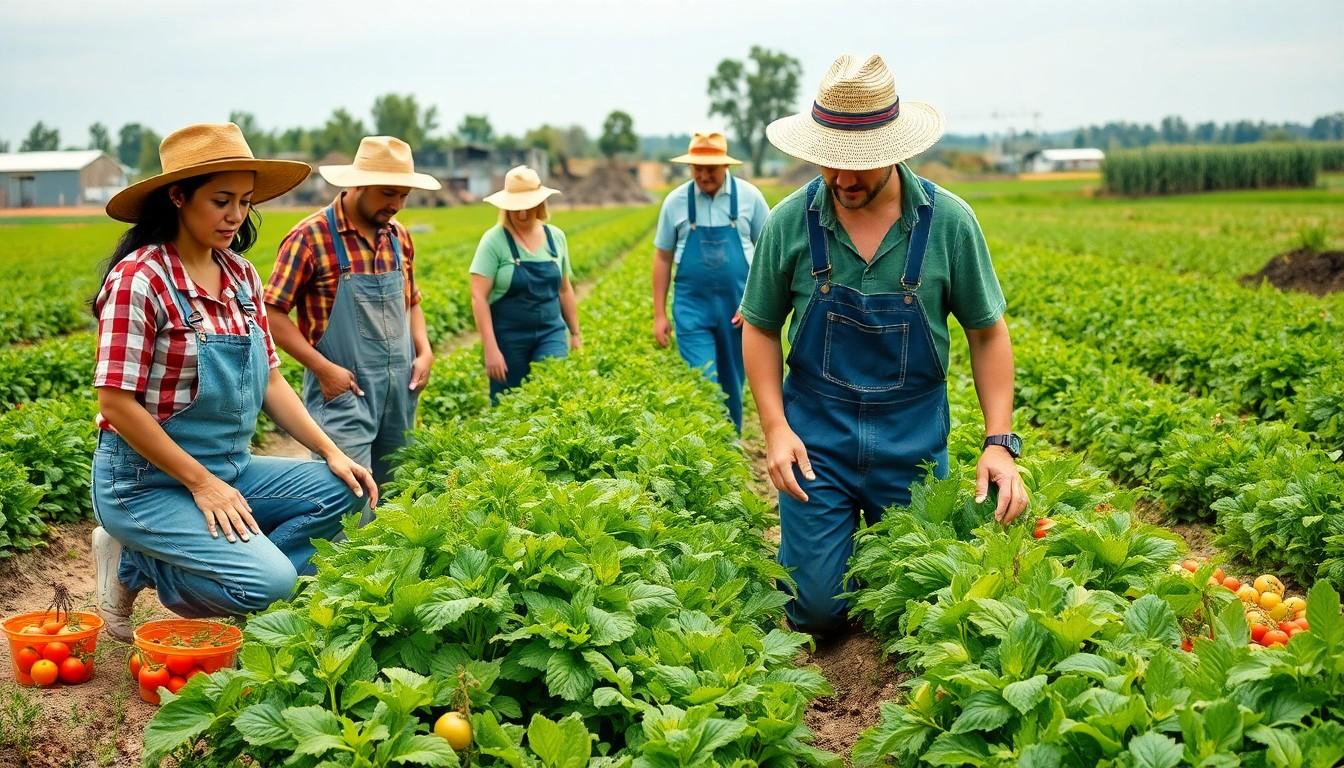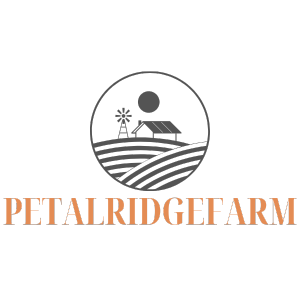In the battle of the fields, natural farming and organic farming are like two rival superheroes, each with its own unique powers and devoted followers. While both aim to cultivate crops without harmful chemicals, they take different paths to achieve their goals. It’s a bit like choosing between a trusty old bicycle and a sleek electric scooter—both will get you where you want to go, but the ride will feel quite different.
Natural Farming vs Organic Farming
Natural farming emphasizes cultivating crops in harmony with nature. This method avoids synthetic chemicals and promotes soil health through regenerative practices.
Principles of Natural Farming
Natural farming rests on several core principles. It prioritizes minimal disturbance to the soil, promoting soil biodiversity and enhancing nutrient availability. Crop rotation plays a vital role, as it maintains soil fertility and disrupts pest cycles. Additionally, using organic inputs, such as compost and cover crops, enriches the soil without chemical additives. Natural farming also encourages the integration of livestock in farming systems, providing natural fertilizer while managing pests naturally. In summary, these principles create a resilient farming ecosystem.
Benefits of Natural Farming
Natural farming offers numerous benefits for sustainability. Improved soil health leads to higher crop yields over time. Biodiversity increases, promoting a balanced ecosystem that supports various plant and animal life. This farming method enhances resilience against pests and diseases, reducing the reliance on chemical pesticides. Farmers practicing natural farming often report decreased production costs, as labor and external inputs diminish. Water conservation improves through enhanced soil structure, allowing better moisture retention. Overall, natural farming fosters a sustainable approach to agriculture with long-term advantages.
Overview of Organic Farming

Organic farming emphasizes sustainable practices that enhance soil health and ecosystem integrity. This approach aims to produce crops without synthetic chemicals while adhering to specific guidelines established by certifying bodies.
Principles of Organic Farming
Organic farming operates under several core principles. Maintaining soil health ranks as a top priority through techniques such as crop rotation, cover cropping, and composting. Farmers avoid synthetic fertilizers and pesticides to promote biodiversity in crops and enhance ecosystem resilience. Animal welfare considerations play a vital role, with livestock integrated into systems to provide natural manure. Certification processes require adherence to stringent organic standards that ensure the purity of products.
Benefits of Organic Farming
Numerous benefits arise from organic farming practices. Soil quality receives improvement through organic matter addition, boosting nutrient content. Biodiversity gains increase as varied crop rotations and cover crops encourage ecosystem stability. Pest management depends on natural predators, reducing reliance on chemical interventions. Additionally, organic farming practices typically yield healthier food options, appealing to health-conscious consumers. Financially, market demand for organic products often translates to higher prices for farmers, enhancing their overall profitability.
Key Differences Between Natural Farming and Organic Farming
Understanding the key differences between natural farming and organic farming highlights their unique methodologies and impacts.
Farming Practices
Natural farming relies on principles like minimal soil disturbance and regenerative practices. Crop rotation and the use of organic inputs, such as compost and cover crops, enhance soil health. Livestock integration serves as a natural fertilizer and pest management tool. Organic farming, while also promoting sustainable practices, follows specific guidelines set by certifying bodies. This method insists on the avoidance of synthetic fertilizers and pesticides. Both practices emphasize crop rotation and composting, yet the certification process in organic farming distinguishes it from natural farming.
Environmental Impact
Natural farming contributes positively to soil health and biodiversity. It promotes resilience against pests and diseases while reducing production costs. Water conservation benefits farmers through its regenerative practices. Organic farming enhances ecosystem integrity by avoiding synthetics, encouraging natural pest management, and benefiting animal welfare. Soil quality and biodiversity improvements are common in both approaches, yet organic farming does so while meeting market demand for certified organic products. Each method fosters sustainability, although their impacts and regulations vary.
Challenges and Limitations
Adopting natural or organic farming comes with its own hurdles. Each method faces unique challenges that impact productivity and farmer adoption.
Challenges in Natural Farming
Natural farming presents several challenges. Lack of standardized practices can create inconsistency in crop yields. Farmers unfamiliar with regenerative techniques might struggle to implement them effectively. Limited access to organic inputs like compost and cover crops could hinder progress. Additionally, the absence of formal certification leaves some consumers questioning the quality and safety of produce. Weather fluctuations can also significantly affect natural farming efforts, as resilient practices may require time to establish. Furthermore, building sufficient biodiversity takes years, delaying visible results for growers.
Challenges in Organic Farming
Organic farming encounters its own set of difficulties. Certification processes impose strict guidelines that can be time-consuming and costly for farmers. Transition periods can last several years, during which farmers must adhere to organic regulations without the benefit of premium pricing. Compliance with market standards creates pressure, as producers navigate fluctuating consumer demand. Pest management can be challenging, requiring innovative, non-chemical methods that may not always yield immediate results. Additionally, labor-intensive practices such as manual weeding contribute to higher production costs. Balancing these factors can complicate the growth of organic farming operations.
Sustainable Practices in Modern Agriculture
Natural farming and organic farming both strive for sustainable agriculture but take different paths to achieve their goals. Natural farming focuses on working in harmony with nature using regenerative practices while organic farming adheres to specific guidelines for certification.
Each method offers unique benefits and faces distinct challenges. Farmers must weigh these factors when choosing the best approach for their land and market. Ultimately, both methods contribute to a healthier environment and promote biodiversity, showcasing the importance of sustainable practices in modern agriculture.

